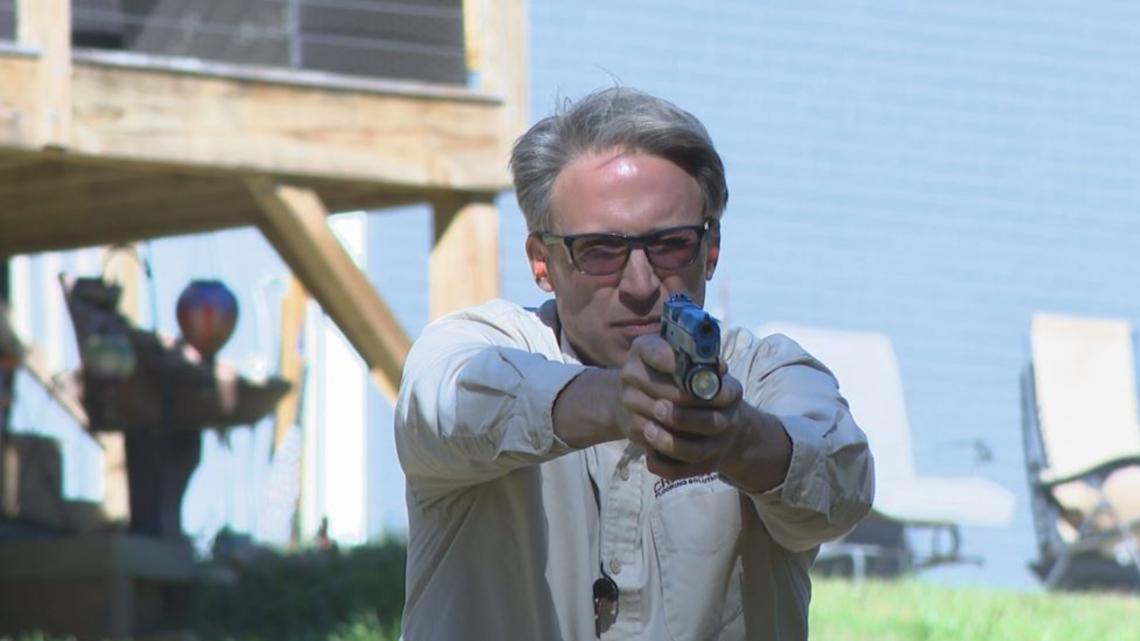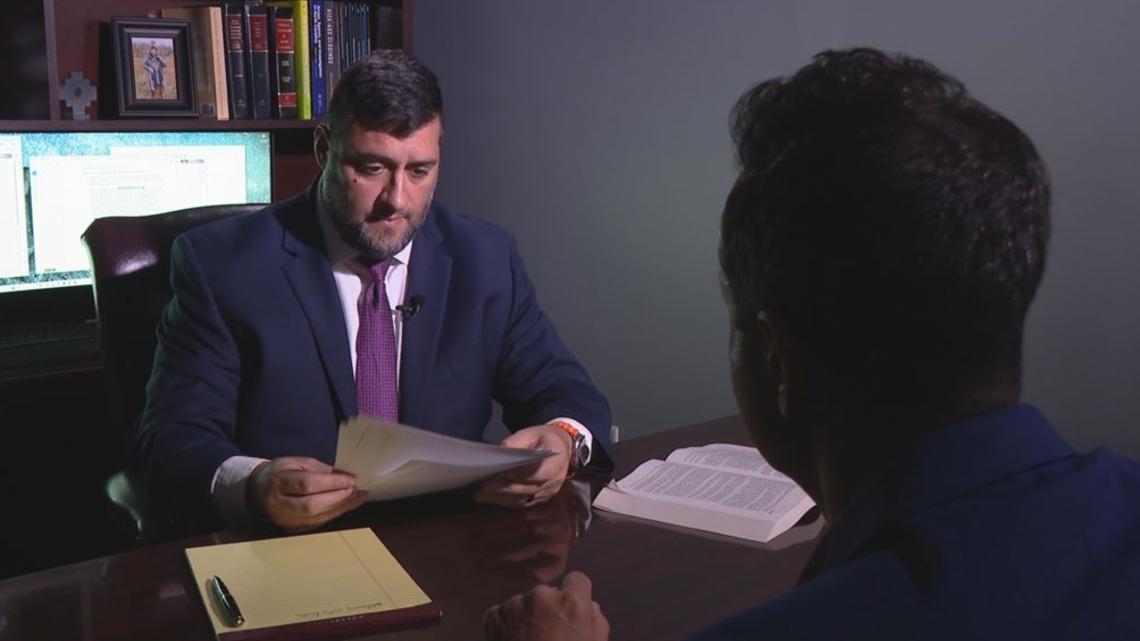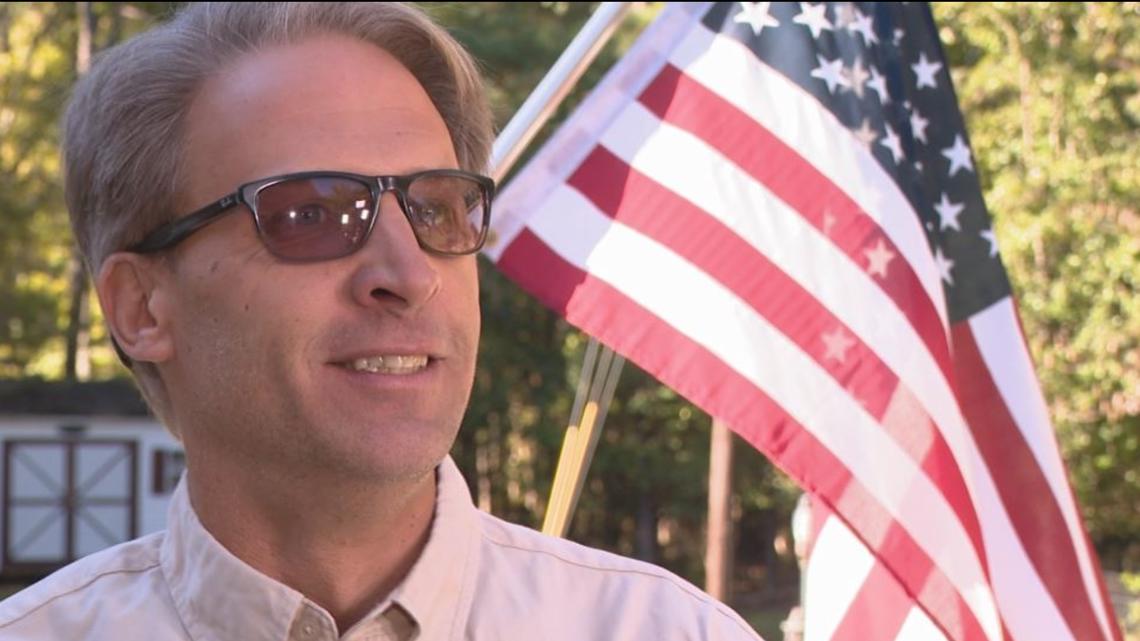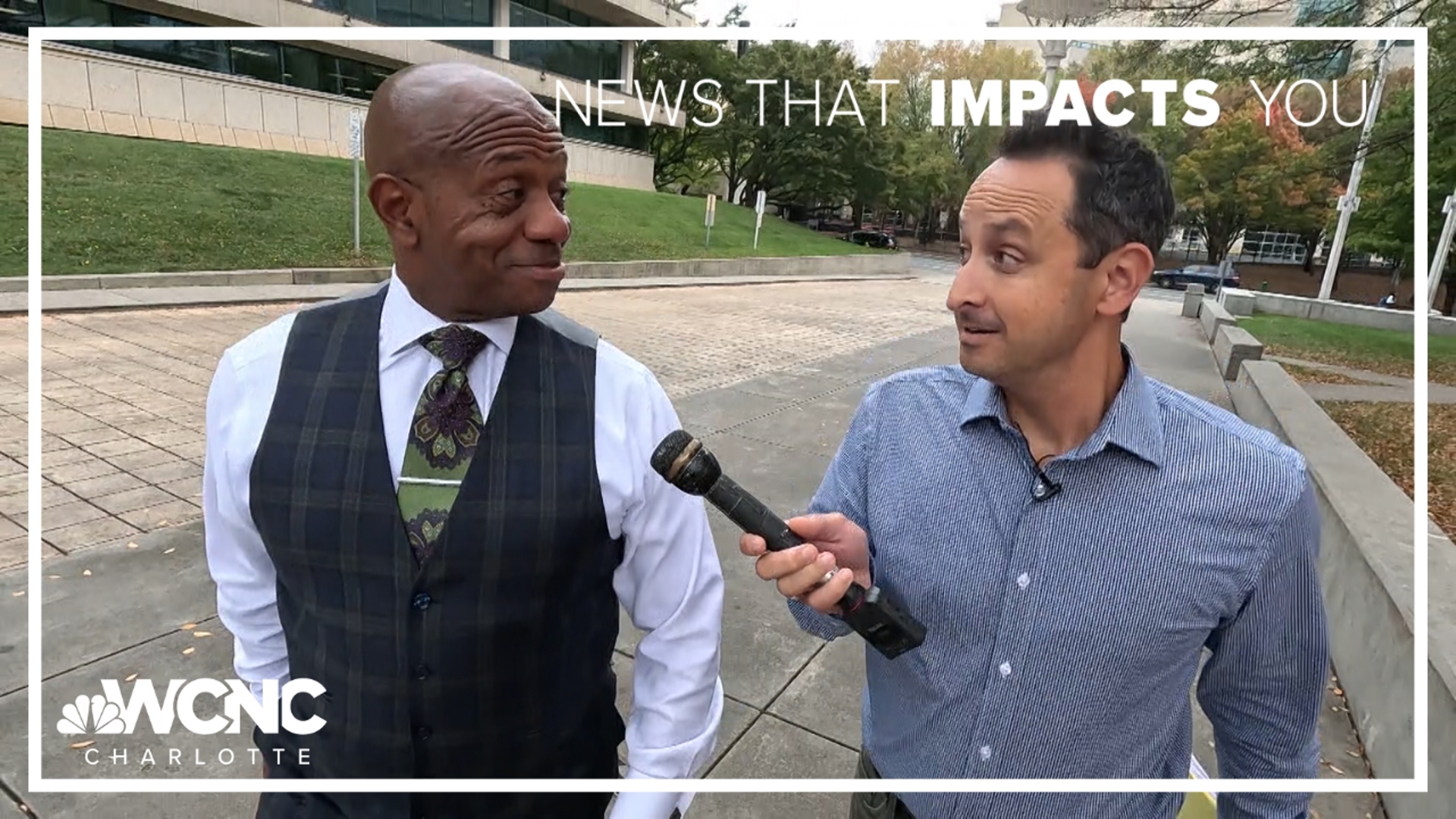CHARLOTTE, N.C. — Gun owners who've taken steps to treat their addiction and are in active recovery are getting denied concealed carry permits by the Mecklenburg County Sheriff's Office and it's costing some of them thousands of dollars to fight the illegal denials in court.
A WCNC Charlotte investigation found the sheriff's department has a longstanding system in place that prevents people living in sobriety from legally concealing their guns when in public. Court records show MCSO has denied concealed carry permits in recent years for people whose health records last noted addiction as far back as 1991.
"No matter the year, deny"


When someone applies for a gun permit, they give the sheriff's office the right to review their mental health history. Under the law, if that person is found to be an "unlawful user of or addicted to any controlled substance," they cannot get a permit.
A sheriff's office internal document, obtained by WCNC Charlotte, concludes if mental health records show a person is addicted or has attended Alcoholics Anonymous, Narcotics Anonymous or detox, "no matter the year," employees should deny them.
Gun owner Chris Cranston could not believe it when MCSO came to revoke his permits in 2021, citing health records that noted nightly marijuana use a year prior.
"On Easter weekend, Saturday night, a totally mind-blowing event. It was like, 'The tyrants are here,'" Cranston recalled. "I told the (nurse) I had tried some different things to try to fall asleep. I told them I had tried the CBD. It wasn't even helping me sleep. It was like a weeklong experiment. They used that...to revoke my gun rights."
Part of a pattern
His case is a snapshot of a broader problem: people misclassified by the sheriff's office. Attorney Ron Shook has argued appeals in several of those cases.
"I only work with people that I'm convinced are going be safe to the community," Shook said. "I have represented many individuals, including veterans, who are in recovery, have been in recovery for years, haven't touched a substance in years, but they're still being denied."


Denial records obtained by WCNC Charlotte through a public records request show MCSO has cited unlawful use or addiction as cause for denials in hundreds of cases over the last decade, spanning two sheriffs. Shook, who has successfully fought the current sheriff on Second Amendment cases, said the denials disproportionately affect veterans.
"Veterans have been trained and have given for our country and it is insulting to teach someone to use a firearm and be responsible with a firearm and trust them with a firearm and then tell them when they return to civilian life that they're not allowed to carry one concealed," Shook said. "By depriving people of concealed carry, you're depriving them of their Second Amendment right to keep and bear arms."
Shook believes in redemption. He said federal law supports that too. The law defines an addict as someone who has remained a habitual user endangering others or has lost the power of self-control.
"Those are the individuals that we should be talking about while they are in the throws of addiction, not the guy who is in AA and has been working the program for 20 years," Shook said. "This issue is a really personal one to me. My mother's an addict and I grew up going to AA and playing with the children in the rooms, as we called them, so I understand addiction. I don't believe that someone who, in the past has had an issue, that that issue should define them for the rest of their life."
A confrontation outside the courthouse
The never camera-shy Sheriff Garry McFadden initially refused to answer questions about MCSO's practice on-camera. Instead, a spokesperson referred WCNC Charlotte to a prepared statement in mid-October.
"Sheriff Garry McFadden supports the Second Amendment rights; however, the sheriff must also abide by laws applicable to MCSO operations," Public Information Manager Sarah Mastouri said. "Addiction to alcohol or drugs is a legal prohibitor to the issuance of a concealed handgun permit. MCSO's permitting staff must abide by legal requirements for issuing concealed handgun permits. Therefore, MCSO considers every application as a unique set of data to be carefully evaluated. Indication of an applicant's addiction to alcohol or drugs could include, without limitation, a medical history of addiction or participation in programs, such as Alcohol Anonymous and Narcotics Anonymous. Less than 10% of MCSO's concealed handgun permit denials are ever appealed, and a vast majority of those denials are upheld by the District Court."
After weeks of trying to convince McFadden to explain his reasoning on-camera, WCNC Charlotte alerted his office that, while not preferred, WCNC Charlotte intended to interview the sheriff in a public setting in the days and weeks ahead.
"Tell me why are you all consistently denying conceal carry permits for people in active recovery?" WCNC Charlotte asked the sheriff as he walked outside the courthouse on Nov. 6.
"It is a process, an appeal process," McFadden replied. "They have time to appeal it."
"It costs thousands of dollars to appeal," WCNC Charlotte pushed back.
"That's a process," the sheriff again said. "It's a process."
"So, you're putting the responsibility on those people?" WCNC Charlotte replied.
"No. No, that's a responsibility of their rights," McFadden said.
"They are in active recovery, some people for 30 years and you're denying them," WCNC Charlotte said.
"I denied them?" the sheriff replied.
"Your office is denying them. How is that fair?" WCNC Charlotte asked.
"Process of the judicial system," the sheriff said yet again. "Process of the judicial system."
"But the process starts with you," WCNC Charlotte added.
McFadden said his department's process is a carryover from past sheriffs and insisted he's always bound by the law. WCNC Charlotte shared the legal definition of an addict with the sheriff.
"I would grant people freedom if I could, but the law says differently," the sheriff said.
"I just read you the law," WCNC Charlotte said. "If someone is not, by law, an addict, they should not have their concealed carry permit denied."
"And if they don't agree with the process, they appeal it," McFadden said.
"You have a memo that says if you attend AA once, you should be denied. How is that fair?" WCNC Charlotte asked.
"The process before the court system," McFadden said. "Come through the process of appeal. That's what our justice system is for. If you don't agree with the verdict or the decision, you appeal it through the process."
"I fought the law and I won"
WCNC Charlotte found more than 20 cases since the sheriff took office where people appealed and judges overturned their denials, including in Chris Cranston's case.
A judge found when it came to Cranston's rights, the sheriff got it wrong, noting the sheriff's decision was not "reasoned and reasonable" or "appropriate per his guidelines."


"I fought the law and I won," he said.
His appeal cost him $7,000, Cranston said.
"If they would quit going after people who have improved their lives and are better now than they used to be and start going after actual gun criminals, we'd all be better off."
MCSO recently settled a lawsuit from numerous gun rights activists addressing another problem with concealed carry permits. The lawsuit, which was filed in November 2022, argued the sheriff's office violated a federal rule by taking too long to process applications for concealed carry permits. As a result of the settlement, the sheriff's office now has 45 days to issue or deny permits after reviewing any relevant records.
On the same day WCNC Charlotte aired this story, McFadden issued a public apology for "racially charged" language he used in a video amid a controversy that saw his chief deputy resign over allegations of a toxic work environment and unprofessionalism.


